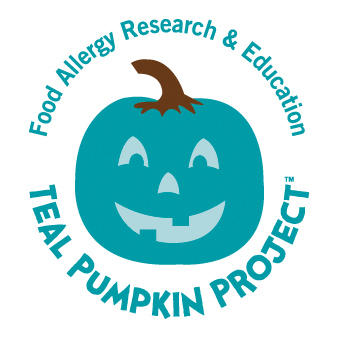
What’s This Teal Pumpkin Thing About?
This year we learned about the teal pumpkin project. People who are aware of growing food allergies in children will display a teal pumpkin on their porch signifying they offer alternative treats. Some may give out the dreaded and frightening toothbrush or pencil! Others may hand out the worst candies to give on Halloween; licorice, raisins and candy corn. But guess what? Those are awesome to a kid with food allergies! No nuts and likely no dairy. Other alternatives to hand out are stickers, little plastic toys and gum.
The project by FARE – Food, Allergy, Research and Education started last year. I don’t expect to see many teal pumpkins in my neck of the woods and that’s OK. It is ultimately my responsibility to monitor what my kid eats. But to know that neighbors and even strangers are willing to accommodate kids with food allergies, well, that’s not scary at all.
Related Stories:

Why affordable housing providers say they’re facing an ‘existential’ crisis
Affordable housing providers across the Northwest have been contending with rising insurance premiums — and, in some cases, getting kicked off their plans altogether.

Pacific Northwest author’s new novel captures atmosphere of the region
On a gray, early spring morning, I drove to Steilacoom, Washington, to catch the ferry to Anderson Island. I boarded alongside the line of other cars and after parking, stepped out onto the deck of the boat. The ferry pushed off from the dock and rocked a little in the Puget Sound before steadying.
I took this journey to the real Anderson Island to see from the water what inspired Northwest author Kirsten Sundberg Lunstrum’s new novel, “Elita,” which was published earlier this year. Sundberg Lunstrum was inspired while sailing around the Puget Sound to write a mystery novel on an island.
Sundberg Lunstrum read excerpts of the book at a gathering at Tacoma’s Grit City Books.

Repentina suspensión de Head Start afecta a cientos de niños en el centro de Washington
Suspensión de los programas Early Head Start y Head Start afecta a siete Inspire Development Centers en el centro de Washington, dejando a más de 400 niños sin apoyo educativo después de que la financiación federal nunca llegara. También provocó el despido de más de 70 personas.












